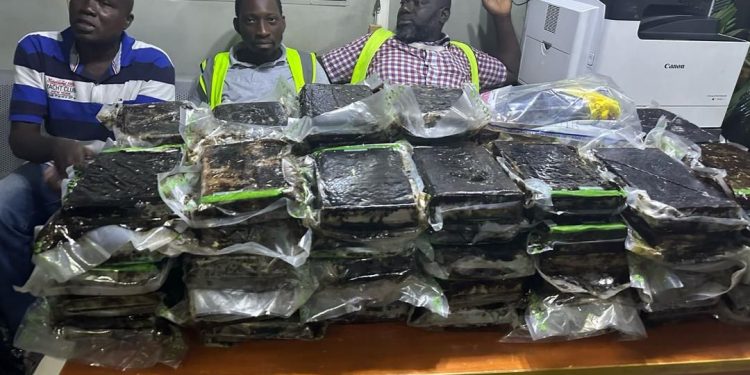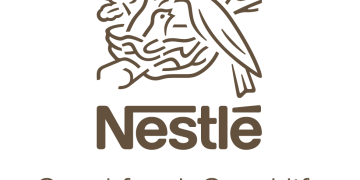Ghana’s NACOC Intercepts Nearly 90kg of Cocaine at Airport Cargo Hub in Major Anti-Drug Operation
Ghana’s Narcotics Control Commission (NACOC) has intercepted 89.74 kilograms of suspected cocaine at Swiss Port, a major air cargo terminal located at the Kotoka International Airport (KIA) in Accra. The operation, one of the largest recent airport seizures, highlights growing concerns over the use of Ghana’s aviation logistics infrastructure as a conduit for transnational narcotics trafficking.
The illicit substance, concealed in 73 slabs within an outbound shipment reportedly destined for the Netherlands, was discovered during a targeted inspection based on actionable intelligence. Four individuals suspected of involvement in the trafficking attempt have been arrested and are currently in NACOC custody as investigations continue.
Authorities have not yet disclosed the identities of the suspects or the concealment techniques employed. However, the Commission has confirmed that a full-scale operation is underway to dismantle the criminal network behind the attempted smuggling.
The seizure underscores mounting vulnerabilities within Ghana’s airport cargo systems, despite ongoing investments in aviation infrastructure and customs modernization. Analysts warn that recurring drug-related breaches at KIA could expose Ghanaian air freight to reputational damage, stricter international compliance protocols, and potential commercial disruptions.
Swiss Port Ghana, a strategic partner in KIA’s cargo operations, handles airfreight logistics for both exports and imports. As a key node in Ghana’s international trade ecosystem, any compromise in security protocols could have ripple effects on Ghana’s export competitiveness and airport integrity.
“This incident reveals the dual challenge Ghana faces: maintaining seamless trade facilitation while guarding against exploitation by transnational criminal networks,” said a senior logistics expert based in Accra.
NACOC officials, responding to the development, reaffirmed the agency’s resolve to intensify surveillance and intelligence-driven interventions across all ports of entry and exit.
“Our operations are increasingly intelligence-led, and this latest interception is evidence of the vigilance of our officers,” a NACOC spokesperson noted in a press release. “We are determined to prevent Ghana from being used as a transit point for international drug syndicates.”
The bust comes amid ongoing policy reforms aimed at enhancing border security, including the integration of advanced screening technologies and enhanced inter-agency collaboration among NACOC, the Ghana Airports Company Limited (GACL), Ghana Civil Aviation Authority (GCAA), and national security agencies.
The Netherlands, where the cargo was headed, is a well-established entry point for cocaine into Europe, making this seizure significant for cross-border investigations. Law enforcement sources suggest that Ghanaian authorities may deepen cooperation with European partners such as Europol and the Dutch Fiscal Information and Investigation Service (FIOD) to trace and prosecute those involved in the supply chain.
As the investigation continues, Ghana’s aviation and trade authorities are expected to come under greater pressure to safeguard critical logistics hubs while maintaining the flow of legitimate commerce.









